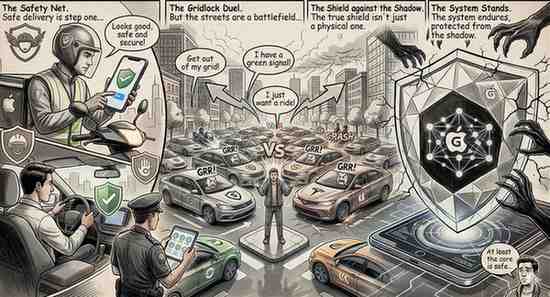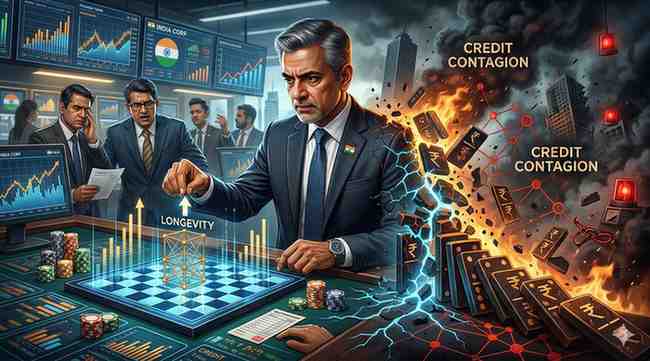
A Shift in Perspective: The Need for Leaders with Vision
- admin
- November 15, 2025
- Politics, World View
- 0 Comments
New Delhi, 2025 — As India stands on the precipice of change, there is a growing consensus among the electorate that the time has come for a shift in perspective—a move away from the divisive politics of religion and caste, and toward leaders who can offer a vision of unity, progress, and inclusivity. Religious and caste-based politics, which have long dominated the Indian political scene, are increasingly being seen as barriers to the nation’s true potential. These issues, though deeply embedded in the fabric of Indian society, often serve to divide rather than unite, leading to political instability, social tension, and a lack of forward-thinking policies.
India’s strength lies in its diversity, yet this very diversity is often exploited for political gain. As the nation continues to develop, the need for leaders with vision—leaders who look beyond caste and religion and focus on policy, governance, and national progress—has never been more pressing.
The Legacy of Caste and Religious Politics
- The Persistence of Caste-Based Politics
- For decades, political parties in India have relied heavily on caste-based voting blocks to secure electoral victories. The politics of caste, deeply rooted in Indian society, has been used as a tool to mobilize votes and maintain power. Leaders have often made promises tailored to specific caste groups, playing on historical grievances and divisions.
- In recent years, caste-based politics have continued to thrive, with parties targeting specific caste groups for support. However, this has often led to a fragmented political landscape, where the focus remains on appeasing particular groups rather than addressing the needs of the nation as a whole.
- Religious Polarization and its Impact
- Similarly, religious identity has become a cornerstone of political discourse in India. Religious lines are frequently drawn during election campaigns, with parties attempting to appeal to voters based on their faith. Communal politics has led to increased polarization and even violence, undermining India’s foundational values of secularism and unity.
- Politicians who seek to divide based on religion often exploit sensitive issues such as religious conversions, temple management, and minority rights, further deepening the rift between communities. In the process, long-term policies aimed at fostering harmony and national development are sidelined in favor of short-term electoral gains.
The Need for a Visionary Shift
- Moving Beyond Divisive Politics
- India’s future demands leaders who can rise above religious and caste-based politics. The country’s most pressing issues—such as unemployment, education, healthcare, and climate change—require solutions that transcend identity politics. Leaders with vision understand that the real challenges of governance are not based on religion or caste but on building a prosperous, inclusive nation.
- Political leaders must evolve beyond the narrow, divisive agendas that have dominated Indian politics. Instead of focusing on what divides people, they must lead by emphasizing what unites them—shared economic interests, cultural inclusivity, and national progress.
- A New Generation of Leadership
- There is a growing demand for a new generation of leaders who are less concerned with leveraging identity-based politics and more focused on policy-driven leadership. Leaders with vision must prioritize long-term solutions to national issues, advocating for universal education, accessible healthcare, and inclusive economic growth.
- These leaders should work towards an India where every citizen, regardless of caste, religion, or background, has equal opportunities. They should promote policies that uplift marginalized communities without perpetuating division.
Leaders Who Can Inspire Change
- Inclusive Development and Governance
- True leadership is about creating policies that empower every citizen. Whether it’s through empowering women, improving rural infrastructure, or creating job opportunities, the focus should be on inclusive development. By investing in sectors such as education, skills development, and digital infrastructure, leaders can bridge the gap between different communities, fostering a sense of unity and national pride.
- Policies such as Pradhan Mantri Kaushal Vikas Yojana (PMKVY) and Skill India focus on skill development and job creation, helping to uplift disadvantaged communities, including those from lower castes, without focusing on identity-based divisions.
- Fostering Unity in Diversity
- India’s greatest strength lies in its diversity—religious, cultural, and linguistic. Leaders with vision should not only celebrate this diversity but should also find ways to ensure that it works for the common good. Promoting national unity through inclusive governance, shared economic prosperity, and cultural exchange should be at the heart of any leadership agenda.
- Leaders must build bridges, rather than walls, ensuring that everyone feels represented and valued in the political process. Policies that emphasize social harmony and community welfare can create a truly inclusive society.
- Secularism as a Guiding Principle
- At the core of India’s political identity is the principle of secularism—the idea that the state should remain neutral in matters of religion. Leaders with vision should adhere to this principle, ensuring that policies and governance are based on reason, science, and the welfare of all citizens, rather than religious or caste-based considerations.
- India’s political future must be guided by leaders who respect the diversity of faiths in the country but refrain from using religion as a political tool. Leaders should aim to promote harmony, peace, and coexistence, ensuring that no group feels marginalized.
The Path Forward: Leadership for a Unified India
- Empowering the Voter
- A well-informed electorate is crucial for demanding the kind of leadership India needs. Voters should be encouraged to look beyond divisive politics and assess political leaders based on their vision, policies, and ability to create positive change for all sections of society.
- Civic education programs that teach voters about their rights and responsibilities can help foster a more engaged and informed electorate, pushing political parties to prioritize substance over symbolism.
- Political Reform and Transparency
- Political reforms that promote transparency and accountability will help to shift the focus away from caste and religion and towards good governance. Strengthening institutions like the Election Commission and promoting clean elections can reduce the influence of identity-based politics, ensuring that leaders are judged on their performance rather than their ability to exploit divisions.
- Fostering a National Dialogue
- There must be a national dialogue that moves away from polarizing issues and centers on solutions to real challenges—like employment, economic growth, and environmental sustainability. The media, civil society, and political leaders must work together to foster constructive debates that focus on policy over identity.
Conclusion: A Vision for the Future
India’s future demands leaders who prioritize unity, progress, and social justice over caste and religious politics. The need for visionary leadership—focused on long-term solutions and inclusive growth—is clearer than ever. As the nation continues to evolve, it is up to the voters, the political system, and the leaders themselves to ensure that the politics of the future are about service, not division, and about building a prosperous India for all its citizens.




